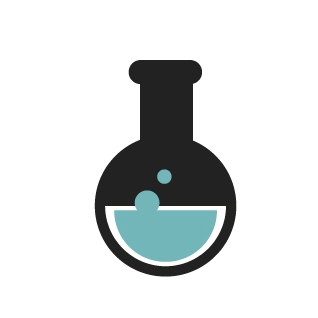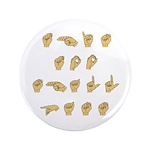Home products retailer Williams-Sonoma will have to pay almost $3.2 million for violating a Federal Trade Commission “Made in USA” order.
Williams-Sonoma was charged with advertising multiple products as being “Made in USA” when they were in fact manufactured in other countries, including China. That violated a 2020 commission order requiring the San Francisco-based company to be truthful about whether its products were in fact made in the U.S.
The FTC said Friday that Williams-Sonoma has agreed to a settlement, which includes a $3.175 million civil penalty. That marks the largest-ever civil penalty seen in a “Made in USA” case, the commission said.
“Williams-Sonoma’s deception misled consumers and harmed honest American businesses,” FTC Chair Lina M. Khan said. “Today’s record-setting civil penalty makes clear that firms committing Made-in-USA fraud will not get a free pass.”
In addition to paying the penalty, the seller of cookware and home furnishings will be required to submit annual compliance reports, the FTC said. The settlement also imposes and reinforces a number of requirements about manufacturing claims the company can make.
In 2023, the global net revenue of Williams-Sonoma amounted to over 7.7 billion U.S. dollars
https://www.statista.com/statistics/246591/net-revenue-of-williams-sonoma-worldwide/
Once again, a corporation breaking the law can just write it off as the cost of doing business.
All I’m hearing is that made in USA is a meaningless label because it’s cost-effective to simply apply it and pay the fine if they ever get to you. Corporations mis using the label can breathe a sigh of relief. No real punishment inbound.
The bottom line is operating income, not revenue. And WSM had an operating income of ~$1.5 billion last year.
The FTC found seven products were falsely advertised, starting with a mattress cover. But Pottery Barn sells over 10,000 products, in fact there are over 500 products in their bedding section alone. And Pottery Barn is just one part of WSM.
It’s near certain that a $3 million fine wiped out whatever profit these seven products made for WSM, and then cut into profits made by other products. So breaking the law was not a profitable strategy for WSM.
The punishment should be calculated based on gross revenue from the product. Not net profit. 50% of gross revenue sounds good.
Of course 50% of gross revenue would immediately bankrupt WSM.
But if you still think that’s an appropriate deterrent, what if we imposed the same penalty on cannabis dispensaries? After all, they are not simply violating FTC regulations, they are engaged in federal felonies.
Of course 50% of gross revenue would immediately bankrupt WSM.
And? Is a housewares store too big to fail?
No, but causing a business to fail is not necessarily the best response to a violation. I don’t want WSM to fail over “made in the USA” labels for the same reason I don’t want dispensaries to shut down.
If a dispensary lied for years about where it sourced its weed and went bankrupt due to the fines, I wouldn’t shed any tears there either.
False advertising should be given zero tolerance. And it isn’t, which is why people keep dying in Teslas using the Autopilot mode.
OK, and if the dispensary violated DEA regulations for years should it likewise be fined out of existence?
If punishment are severe then the corporations would look twice before committing fraud and deception. If not it’s just another slap on the wrist
I think a fine of $3 million is more than a slap on the wrist. It’s a lot more than whatever benefit WSM got from “made in the USA” labels.
That’s the problem the companies don’t fear the consequences for their action. If the fine was huge enough to bankrupt a company. Then the other companies will take a second guess before committing any fraud or deception against the consumers like you and me.
Fines are not tax deductible. So no it’s not a cost of doing business.
The conversational phrase “cost of doing business” does not mean the same thing as the tax law phrase “business expense”.
Write off means write off the books. Otherwise it makes no sense as that the dictionary term for the phrase. You can’t write off a fine. It isn’t “written off”.
Real the whole paragraph. It’s idiotic talk
“Write off” has evolved to have an additional, more casual meaning, and I think it was clear to most of us that the author you’re referring to was using it in that sense.
Edit: Since you’re being pedantic, I checked three dictionaries. This sense of the phrase is in all of them.
What? Sure you can’t deduct them, but if I make $200 million doing something illegal, and the government catches me and fines me $10 million, then that’s just a “cost” I can account for. Make $190 million even after spending $10 million in fines.
Did they make 200 million selling those products ?
7.7b in revenue for the year, probably.
On a handful of products? Doubtful.
At least the government gave them a fine which is a step in the right direction. Country of origin is important to me. I buy based on those labels
Tax deductibility is irrelevant; the cost of the practice pales in comparison to the profit of the practice, making the cost one of doing business.
Removed by mod
That’s like, what… The cost of three “Made in USA” Williams Sonoma credenzas?
You spelled “three plastic spatulas” wrong.
For real I had that written out but couldn’t remember if they sold spatulas.
The FTC said Friday that Williams-Sonoma has agreed to a settlement, which includes a $3.175 million civil penalty. That marks the largest-ever civil penalty seen in a “Made in USA” case, the commission said.
THATS NOT A BRAG YOU WORTHLESS FUCKS
It’s not even the company’s first fine for similar misbehavior.
If the fine isn’t big enough to act as a deterrent, it’s almost like granting permission to do it again.
It’s a warning. The more that know lying will cost you millions the fewer will risk it. The more consumers who know of cheaters the more it will impact the business. Headline grabbing numbers are GOOD.
It’s not even the company’s first fine for similar misbehavior.
If the fine isn’t big enough to act as a deterrent, it’s almost like granting permission to do it again.
bullshit! -history
See also: The free market
Oh wow a whole 3.2 million.
Now if we could only get things like I dunno leaking million peoples of private information to the dark web which adds up to billions in lost revenue and scams for millions of Americans taken as seriously… Nah…
Poor them. A whole $3.2 millions? How will they ever recover from this?
Really depends on the value of the products sold. The find should be double or triple that to have any impact.
Personally I avoid buying anything made in China. Too much risk if it’s something I’ll touch all the time. Too much lead and chemicals in their products.
That’s a blunder.
I’m happy to hear the FTC is doing some shit. Seems like they kept quiet for years, but lately they’ve been on fire









